Every new Michelin-recognised M’sian eatery in 2024, and our first 2-Starred restaurant
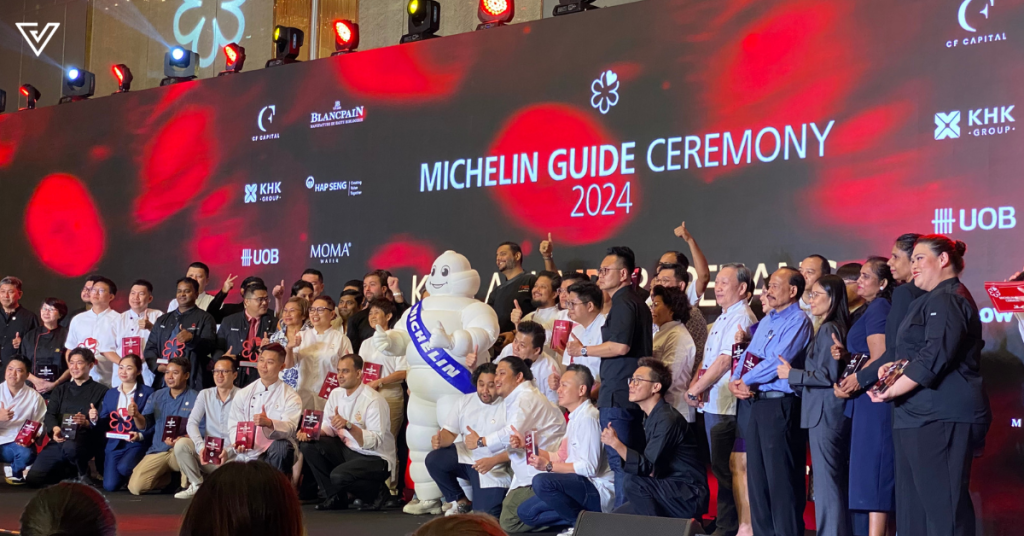
Last year, the Michelin Guide had debuted in Malaysia, giving recognition to food destinations in Kuala Lumpur and Penang.
On November 17, 2023, the Guide has released its second Malaysian edition. Here are all the restaurants named by the Michelin Guide Kuala Lumpur and Penang 2024, including Michelin Starred, Bib Gourmand, and Selected establishments.
A new cast of Michelin Selected eateries
Michelin Selected establishments are those who Michelin recognises have potential, but have yet to make the cut for the Bib Gourmand title or a Star.
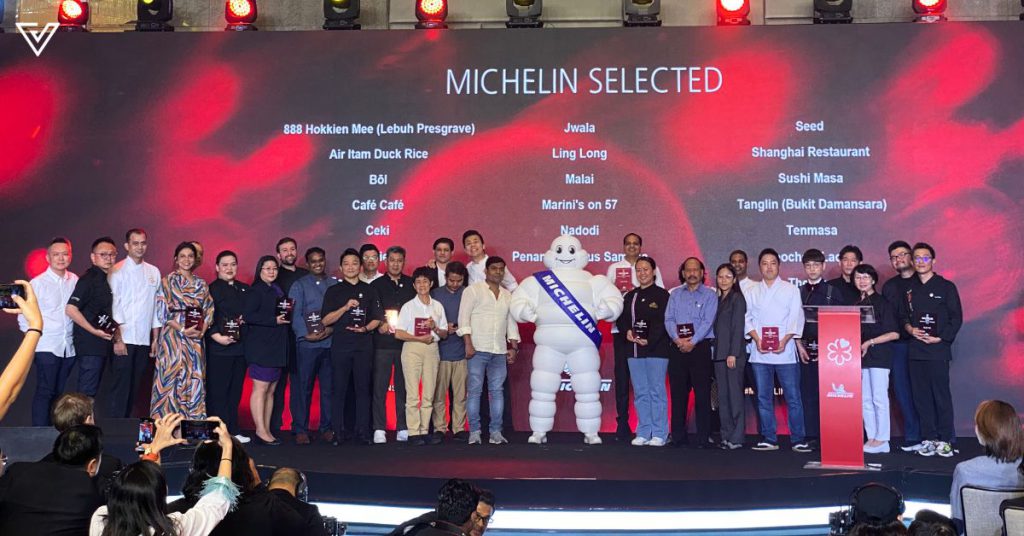
With 25 new names joining this list for 2024, there is now a total of 77 Michelin Selected restaurants in Kuala Lumpur and Penang.
Kuala Lumpur
| Restaurant | Cuisine | Address |
|---|---|---|
| Bōl | Asian fusion | 15, Jalan Sin Chew Kee, 50150 Kuala Lumpur |
| Café Café | French | 175, Jln Maharajalela, Kampung Attap, 50150 Kuala Lumpur |
| Entier | French | Alila Bangsar, 58, Jalan Ang Seng, Brickfields, 50470 Kuala Lumpur |
| Frangipaani | North Indian | The Republik, Mezzanine Floor, Jalan Medan Setia 1, Bukit Damansara, 50490 Kuala Lumpur |
| Jwala | Indian | THE FIVE, Kompleks Pejabat Damansara, 49, Jalan Dungun, Bukit Damansara, 50490 Kuala Lumpur, |
| Ling Long | French-Chinese | The Five@KPD, Jalan Dungun, Bukit Damansara, 50490 Kuala Lumpur |
| Malai | Thai | Menara Ample West, 6, Jalan P. Ramlee, Kuala Lumpur, 50250 Kuala Lumpur, Wilayah Persekutuan Kuala Lumpur |
| Marini’s on 57 | Italian | Petronas, Level 57, Menara 3, Persiaran KLCC, 50088 Kuala Lumpur |
| Nadodi | South Indian and Sri Lankan | Level 7A, Four Seasons Hotel, Jalan Ampang, City Centre, 50450 Kuala Lumpur |
| Seed | French-Japanese | The Five@KPD, 49 Jalan Dungun, Bukit Damansara, Kuala Lumpur, 50490, Malaysia |
| Shanghai Restaurant | Chinese | 183, Jln Bukit Bintang, Bukit Bintang, 55100 Kuala Lumpur |
| Sushi Masa | Japanese | Menara Hap Seng, 3, Jalan P. Ramlee, 50250 Kuala Lumpur |
| Tanglin (Bukit Damansara) | Malaysian | 57G, Jalan Medan Setia 1, Bukit Damansara, 50490 Kuala Lumpur |
| Tenmasa | Japanese | Menara Felda, Persiaran KLCC, Kuala Lumpur City Centre, 50088 Kuala Lumpur |
| Teochew Lao Er | Chinese | 6, Jalan Brunei, Pudu, 55100 Kuala Lumpur, |
| Wagyu Kappo Yoshida | Japanese | 10, Persiaran KLCC, Kuala Lumpur, 50088 Kuala Lumpur, |
Penang
| Restaurant | Cuisine/Specialty | Address |
|---|---|---|
| 888 Hokkien Mee (Lebuh Presgrave) | Hokkien mee | 67-A, Lebuh Presgrave, 10300 George Town, Pulau Pinang |
| Air Itam Duck Rice | Duck rice | Air Itam Wet Market,, Jalan Pasar, Pekan Ayer Itam, 11500 Air Itam, Penang |
| Ceki | Nyonya | 11-A, Jalan Sri Bahari, George Town, 10050 George Town, Pulau Pinang |
| Fook Cheow Cafe | Kuay teow th’ng | 122I, Jalan Hutton, 10050 George Town, Pulau Pinang |
| Penang Famous Samosa | Samosa | 45, Queen St, Georgetown, 10200 George Town, Penang |
| Richard Rivalee | Nyonya | 62 & 64, Lorong Macalister, George Town, 10400 George Town, Pulau Pinang |
| Sambal | Malaysian fusion | 300, Lebuh Pantai, George Town, 10300 George Town, Pulau Pinang |
| The Pinn | Malaysian-Chinese | 58, Pengkalan Weld, George Town, 10300 George Town, Pulau Pinang |
| Jit Seng Hong Kong Roasted Duck Rice | Duck rice | 246, Lebuh Carnarvon, George Town, 10450 George Town, Pulau Pinang |
Fourteen new Bib Gourmand names
Not to be thought of as just some consolation prize, the Bib Gourmand is a coveted award given to restaurants that serve good food at moderate prices.
New entries for the local Bib Gourmand list were announced last week, which you can read about here.
Altogether, there are now 45 Bib Gourmand restaurants in Malaysia.
Some special categories
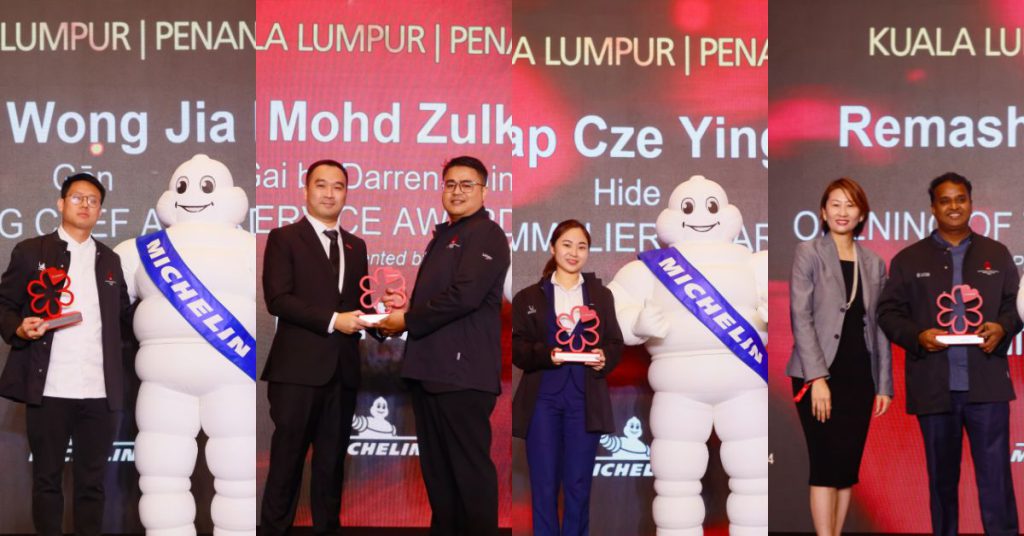
Aside from the Michelin Selected, Bib Gourmand, and Starred restaurants, there were also four special awards handed out during the Michelin Guide Ceremony 2024.
The Opening of the Year Award went to Ramesh Thangaraj, executive chef of Jwala.
Wan Mohd Zulkifeli, the restaurant manager at Gai by Darren Chin was awarded the Service Award for his front-of-house professionalism.
The Sommelier Award was claimed by Yap Cze Ying, the sommelier at Hide Kuala Lumpur.
Lastly, the Young Chef Award went to Johnson Wong Jia Liang of Gēn.
One restaurant joins the Michelin Starred club, three retained
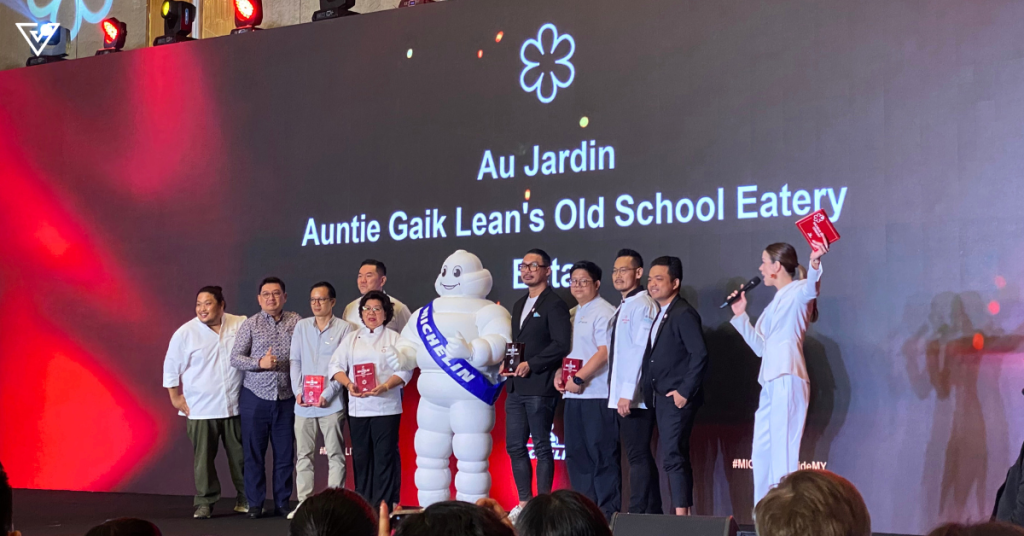
Located on Jalan Perak, Kuala Lumpur, Beta is the only new name to join Malaysia’s cast of one-Michelin Star restaurants this year. It was a Michelin Selected restaurant in 2023.
Helmed by Chef Raymond Tham, Beta features dishes that champion Malaysian flavours and heritage.
For all the foodies who are sure to flock to this newly Starred restaurant, Michelin recommends heading to the lounge first for a round of cocktails and appetisers, before sampling the main courses.
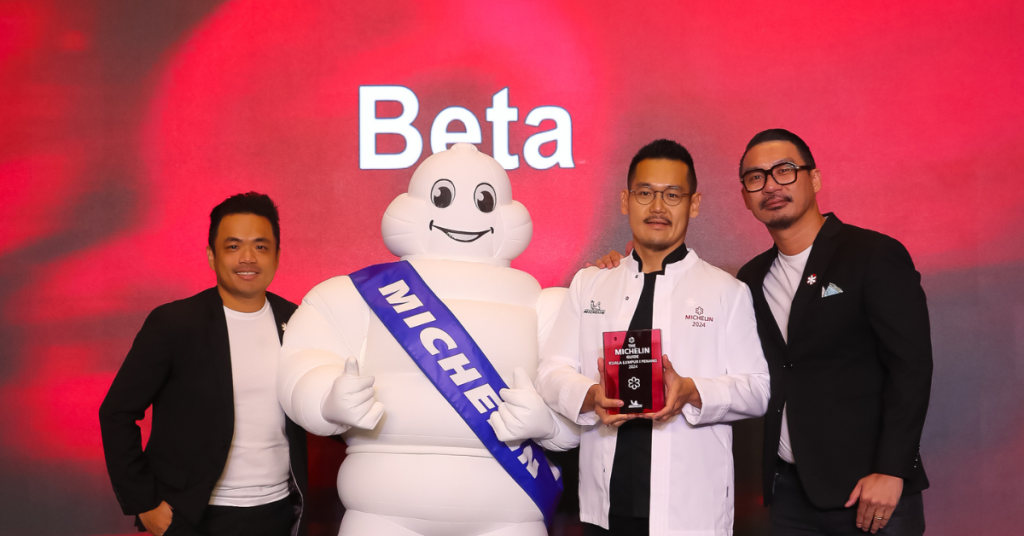
Beta aside, three names retained their Michelin Stars. This includes Kuala Lumpur’s DC. by Darren Chin, and Penang’s Au Jardin and Auntie Gaik Lean’s Old School Eatery.
With that, Malaysia is now home to four one-Michelin Starred restaurants—two in Kuala Lumpur, two in Penang.
Malaysia’s first two-Michelin Starred restaurant
Perhaps one of the most exciting news of the day is Dewakan’s promotion from having one Michelin Star to becoming Malaysia’s very first restaurant with two Michelin Stars.
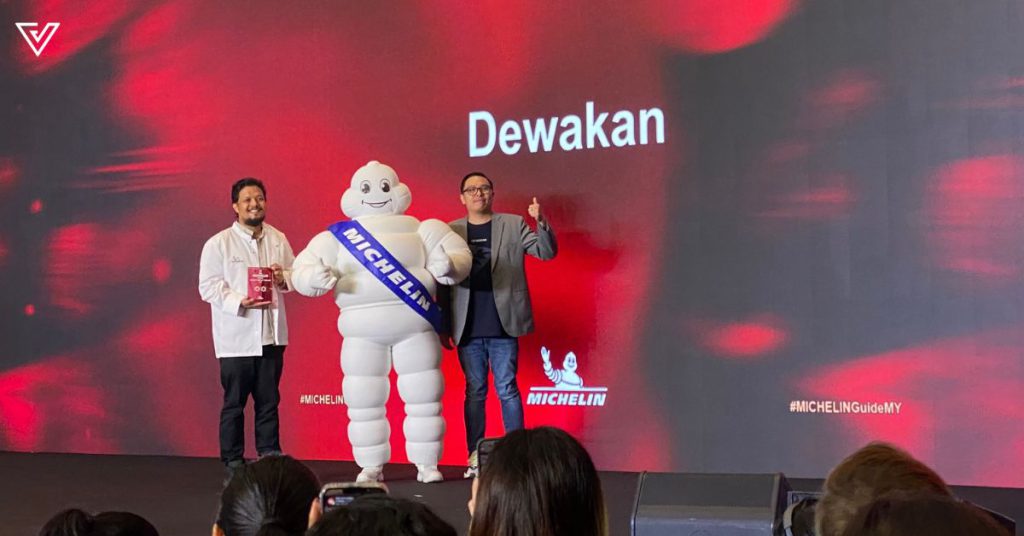
Located in Kuala Lumpur City Centre, Dewakan, of which Darren Teoh is the chef-patron, is a fine dining restaurant that serves modern Malaysian cuisine.
We would like to congratulate all the restaurants, chefs, and teams celebrated by the Michelin Guide Kuala Lumpur and Penang 2024.
As we witness more names getting their well-deserved recognition from the Michelin Guide, we hope Malaysia continues to establish itself on the world map as a gastronomical destination for foodies everywhere.
- Learn more about the Michelin Guide here.
- Read other articles we’ve written about F&B businesses here.
Also Read: Earn RM2.4k/mo as an intern in the capital markets via the investED leadership programme
What does it take to be in the top 1%? Peak XV’s MD on building a multi-generational company
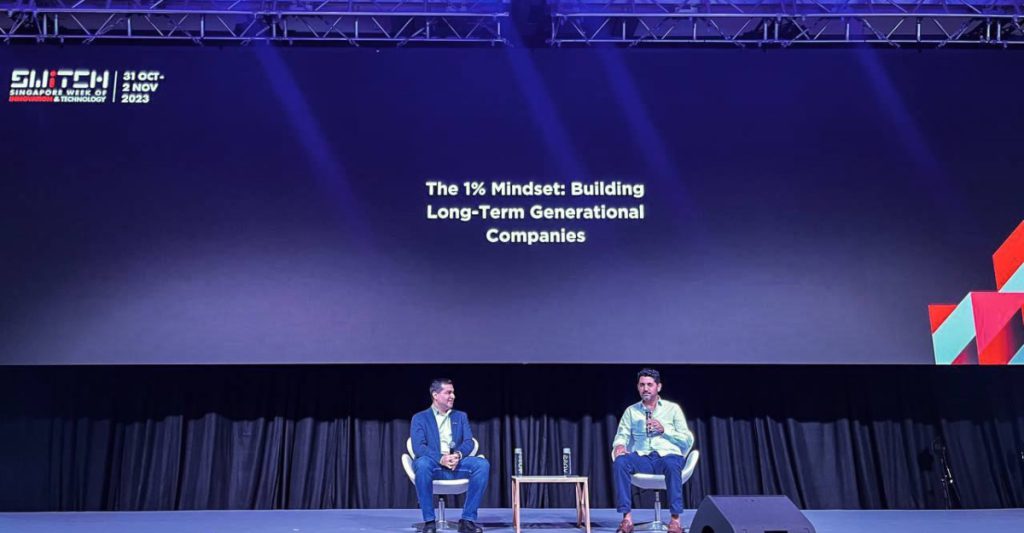
Did you know that only 1.3 per cent of all public listed companies across the globe generate 90 per cent of the world’s wealth? An even smaller percentage — 0.7 per cent, in fact — of these 62,000 companies manage to generate 70 per cent of this wealth.
This statistic becomes even steeper when it comes to private companies, where an even smaller percentage hold the key to a significant portion of generated wealth.
Achieving enduring success across multiple decades is a rare feat for businesses. So, what’s the secret behind crafting a company that belongs to the top “1 per cent”?
At the SWITCH 2023 conference earlier this month, Shailendra Singh, the Managing Director of Peak XV, shared his insights and strategies on building long-term, generational companies.
Too many founders build startups “for the sake of building startups”
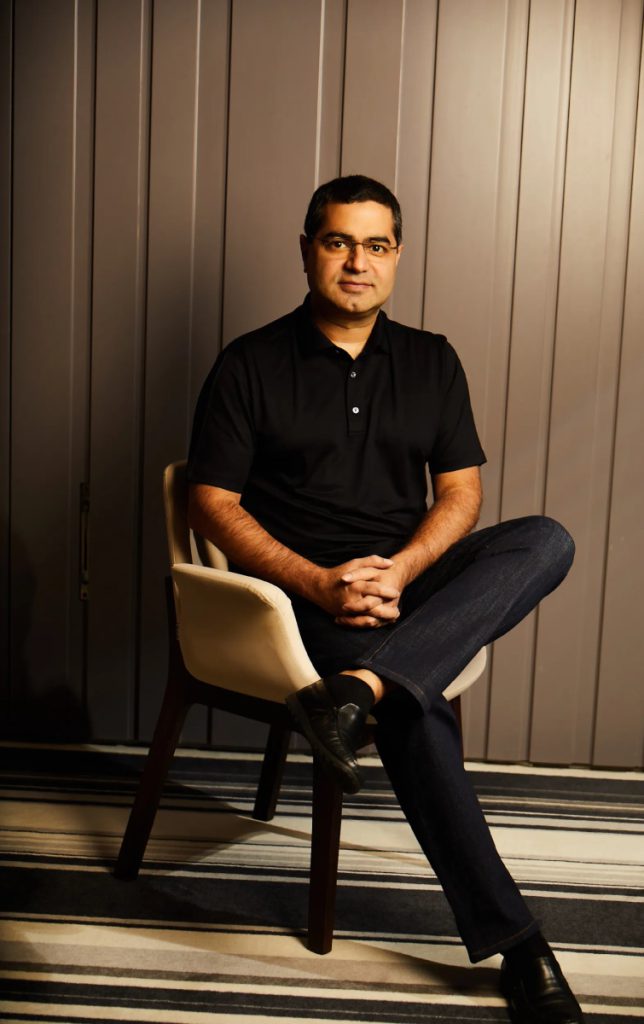
Drawing from his extensive experience of working with founders over the years with Sequoia Capital India & Southeast Asia (which has now been rebranded to Peak XV), Shailendra finds that too many founders build startups “for the sake of building startups”.
This is why many of these founders are often fixated on addressing short-term goals and immediate financial concerns, like how to make the next bill and survive for the next three quarters.
There has been so many times I’ve spoken to founders and they’re like, hey, it’s going great — I’m building a product, I’m going to get product-market-fit (PMF). But I always ask them, what about five or 10 years later? Where will your business be then?
– Shailendra Singh, Managing Director, Peak XV
Instead of focusing on short-term goals, it’s important to have a solid long-term plan to create the “one per cent company” that can withstand the test of time. A vast majority of startup founders often do not ask themselves if they have an enduring business and are late to the game when it comes to identifying key factors that can support the longevity of their ventures in the years to come.
By considering these elements from the outset, startup founders can ensure that their business not only leaves a lasting impact, but also carve out a meaningful space in the market over the long term. “If I were to build a company with this mindset, it would be legacy creating,” said Shailedra.
Having a truly differentiated product
Another key factor that can contribute to successfully building the top “one per cent company” is a compelling PMF. However, many founders tend to overestimate the fit between their services or offerings and the market demand.
Often times, founders prematurely assume that they’ve secured a strong PMF when a few people purchase their products or services. However, in reality, this could indicate a weak PMF, as the broader market demand might not be adequately addressed.
What I always tell founders is that it boils down to something we call ‘calibration’. Let’s say you’re looking for product superiority, how much product superiority is enough? Or if you’re looking to solve a pain point, how strong should that pain point be?
Most founders tend to set the bar too low when it comes to this — they’re happy with a little bit of product superiority.
– Shailendra Singh, Managing Director, Peak XV
In order to successfully build a multi-generational company, Shailendra views that it’s important for founders to set an “extraordinarily high bar that they set for themselves in how much better their product will be”.
The founders of these exceptional companies typically posses “unique and compelling insights” on both the “why’s and how’s” of crafting a superior product, differentiating them from competitors in the field.
But how can founders know if they have a compelling PMF? “I always tell [founders], you know what, you won’t have to ask anyone. When you have really strong PMF, you will feel the pressure of building the company so fast, you won’t have to ask anyone — people will be pulling your product,” says Shailendra.
With high demand and conversion rates, founders who have a good PMF get a better shot at building the top “one per cent company”.
The cornerstone of a thriving company rests on its founders
Besides PMF, having a world-class team is an integral aspect to building a multi-generational company. “None of the one per cent companies are mercenary companies built for money. They’re built by people who are really willing to commit their lives,” says Shailendra.
But beyond the importance of a “mission-oriented team” with “phenomenal culture”, the cornerstone of a thriving company ultimately rests on its founders. Citing billionaires Warren Buffett and Charlie Munger, Shailendra says that the most valuable input in a company is a founder’s input, which is why it’s vital for founders to be “efficient learning machines”.
“I tell every founder that they, themselves, are the rate limiting step of their companies and if they don’t learn and grow personally, they can’t build a huge company,” he said.

Contrary to the “fake it till you make it” mantra, Shailendra believes that the best founders that can lead to company’s growth are those who are authentic — those who wholeheartedly invest themselves in the venture and “are in it for the right reasons”.
This was one of the key factors that drove Shailendra to personally invest into Carousell Group back in 2015.
The three of them [Carousell founders Quek Siu Rui, Lucas Ngoo, and Marcus Tan] came in shorts and their standard Carousell T-shirt to have a quick coffee. I only ever saw them in that T-shirt for the first five years since we invested into them.
And in that 15 to 20 minutes meeting over coffee, I said, look, [Sequoia Capital] would love to partner with you. These guys were authentic — they were exactly what we look for in founders. They had a product DNA and insane love [from] early users, albeit they were very small numbers.
– Shailendra Singh, Managing Director, Peak XV
You don’t have to be in the “one per cent” to be successful
The term “unicorn” is used to define a startup that has reached a valuation of US$1 billion, and most people tend to associate this term as a mark of success.
While the billion-dollar milestone is a good indicator for a startup to evaluate itself, it isn’t really clear if its business is a sustainable and enduring at that point in time, especially as these companies are still in a growth stage and may be burning cash. The only thing that’s for sure is that these unicorn startups are highly valued.
Ultimately, building a one per cent, generational company lies in the idea of “truly thinking and acting in decades”. Nevertheless, success can still happen even if your startup is not in the one per cent.
You don’t have to be one per cent to be successful. Your startup can still make tens of millions and hundreds of millions of dollars even without being in this group, but we can at least aspire to try and build these one per cent companies.
– Shailendra Singh, Managing Director, Peak XV
ANEXT Bank, a Singapore-based digital bank regulated by MAS, empowers startups with easy and accessible financing to fuel their business growth and expansion.
Featured Image Credit: Vulcan Post
Also Read: Startup survival guide: Founders reveal strategies to thrive in S’pore’s funding winter
Ravi Menon shares leadership lessons from his tenure as MAS’ longest-serving chief
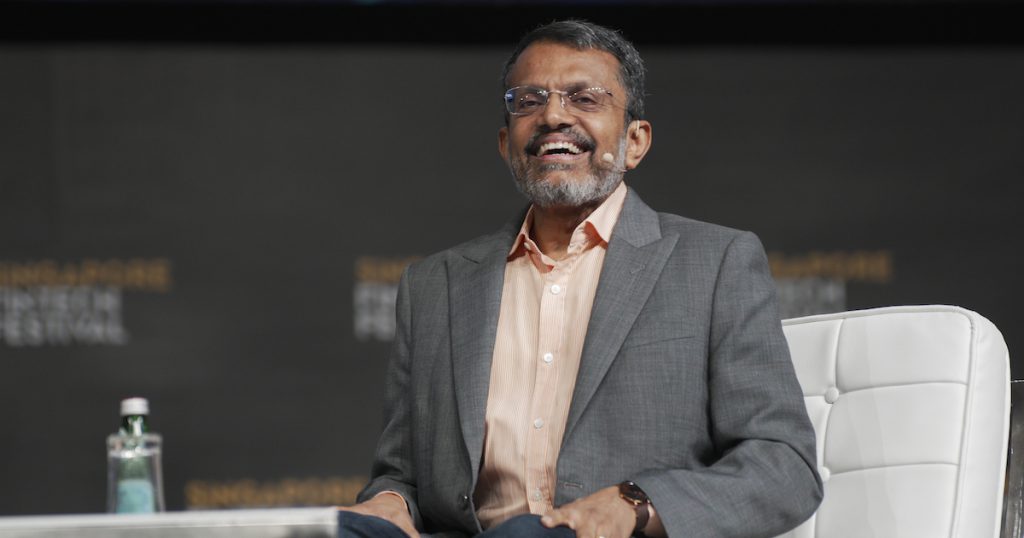
Earlier in September, Ravi Menon, the Managing Director (MD) of the Monetary Authority of Singapore (MAS), announced his intention to retire at the end of 2023. This will mark the end of a 13-year-long tenure, making Menon the longest-serving chief which the MAS has seen to date.
During his time as MD, Menon has led Singapore’s development as a fintech hub. This mission started back in 2015 with the Financial Sector Technology and Innovation Scheme (FSTI), which saw S$225 million committed to the development of the country’s financial ecosystem. In 2020, another S$250 million was dedicated to the scheme to support technological innovation in finance.
As a result of these efforts, Singapore has gone from harbouring only 50 fintech firms in 2015 to over 1,000 today. The fintech market is growing rapidly in the country, with funding reaching an all-time high of US$4.1 billion in 2022.
At the Singapore Fintech Festival 2023 (SFF 2023) today, Menon spoke to MAS’ Chief FinTech Officer Sopnendu Mohanty and DBS’ Managing Director Tan Su Shan about some of the key takeaways from his time leading the MAS.
The spark which ignited fintech in Singapore
Menon reflects on 2015 as a time when there was a noticeable shift in perception towards technological innovation and the impact it’d have on the world going forward.
“Many technologies were coming together in a certain fashion. We just had this instinct that tech was going to be important. It was going to be transformative in ways we did not [yet] understand,” Menon says.
At this time, digital assets and blockchain technology were barely half a decade old. There was a strong need to explore and develop them further before their true value would become apparent. “By getting into it early, experimenting, and collaborating, we [felt that] we could take it somewhere. That’s how it started.”
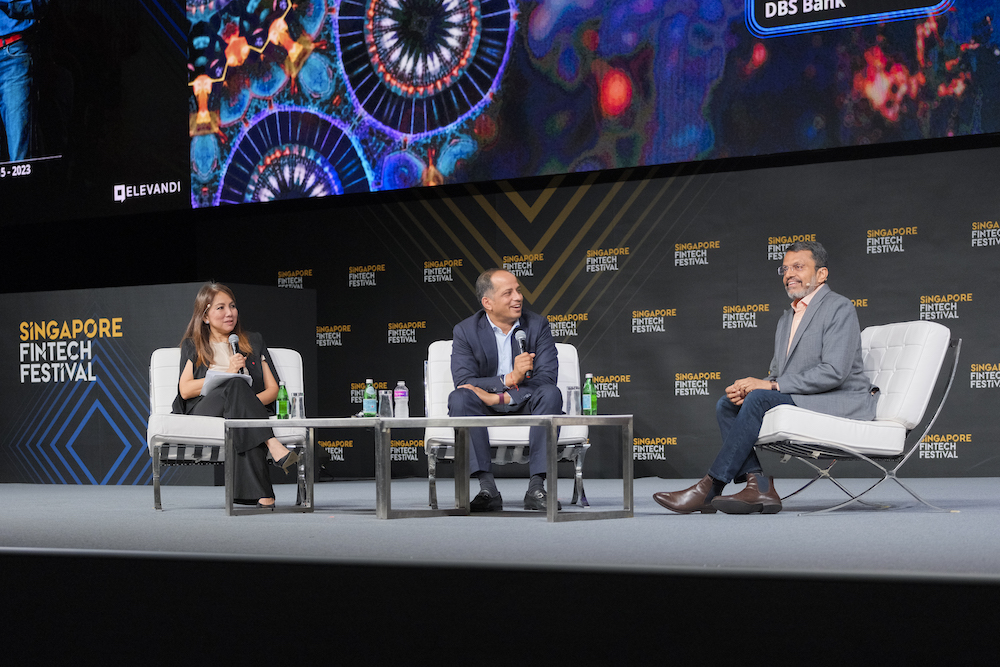
“Eight years ago, I had no clue what any of this was,” Menon continues. He highlights that innovation is a process of continuous learning and pivoting.
“It’s not as if there is a very clear vision. The only mission was ‘let’s use technology to solve our problems’, ‘let’s use technology to create new opportunities’, ‘let’s use technology to improve people’s lives’.”
This method of experimentation – which embraced uncertainty and constant change – allowed MAS to pioneer the development of digital asset use-cases through initiatives such as Project Guardian. As a result, Singapore is now primed to upgrade its financial infrastructure using tokenised assets and programmable money.
A testament to strong leadership
Although Menon is quick to direct the credit to his team and Singapore’s broader fintech ecosystem, his leadership has played an integral role in realising Singapore’s fintech vision over the past decade.
In light of this, Mohanty highlights a few of the qualities which have allowed Menon to be a successful leader. First up is his unique calm nature. “I’ve never seen him angry,” says Mohanty – a remarkable feat after eight years working together in a line of work that is known to be stressful.
Elaborating on this, Menon explains, “When people are doing their best and putting their heart and soul into [their work], it’s very hard to get angry.” He stresses a belief that everyone means well. When you start with that assumption and understand others’ point of view, it removes any basis for anger.
Undoubtedly, this also has a lot to do with building a strong team – people who can be trusted to put their best foot forward. “One of the best decisions I made was hiring Sopnendu and building a team around him,” Menon says.
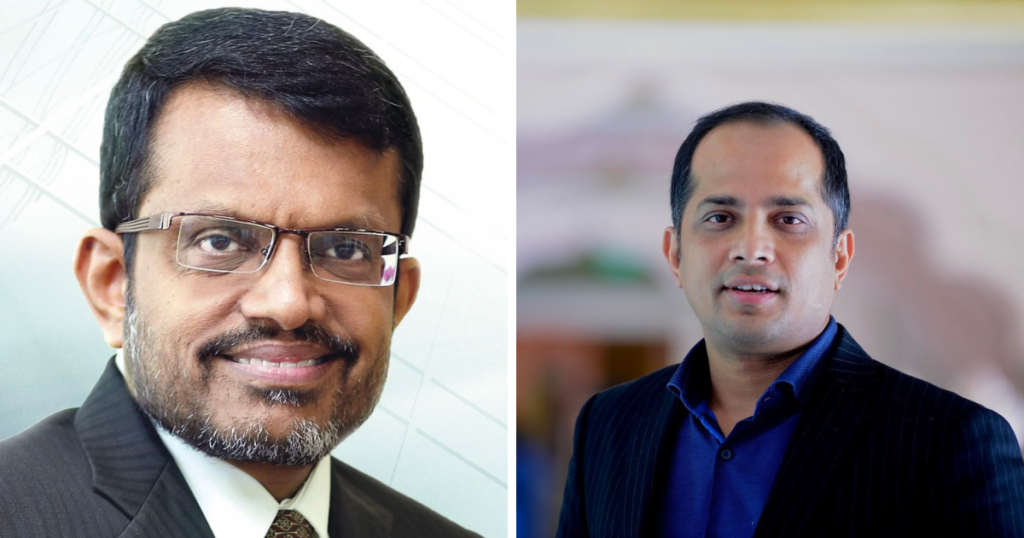
He stresses that this can often be true for others leading teams and organisations as well. “Sometimes, the best decisions we make are [those concerning people] – who we put together, who we put in charge.”
Moving on, Mohanty focuses on a quality which he refers to as ‘super shock absorber’. In an industry which is never short of surprises, Menon has always been able to absorb and roll with whatever is thrown his way.
“When they happen all the time, they don’t seem like shocks,” Menon explains. In the financial sector, that’s the nature of work. What’s important isn’t the shocks but the way you respond to them.”
“[It’s important to] have a sense of detachment,” Menon advises. “When everybody’s [panicking], be a witness and watch the scene. Take your mind away from the issue at hand. [That can help you] see much more clearly.”
Menon acknowledges that this isn’t always easy to do, but stresses on how useful this can be. “Many of us get caught up and that’s where we get flustered. Whenever you withdraw yourself, it works.”
Finally, Mohanty recounts Menon’s ability to masterfully summarise and recount what others have said. Menon explains that this is a quality derived from respecting everyone’s views and trying to understand their unique perspectives.
“Each perspective is valuable and the job of a leader is to see the connections and form a bigger picture.”
Featured Image Credit: Singapore Fintech Festival 2023
Also Read: “Cryptocurrencies have failed the test of digital money”: MAS’ MD Ravi Menon on the future of fintech
These M’sians revamped their 6 Y/O toothpaste brand to approach oral care like skincare
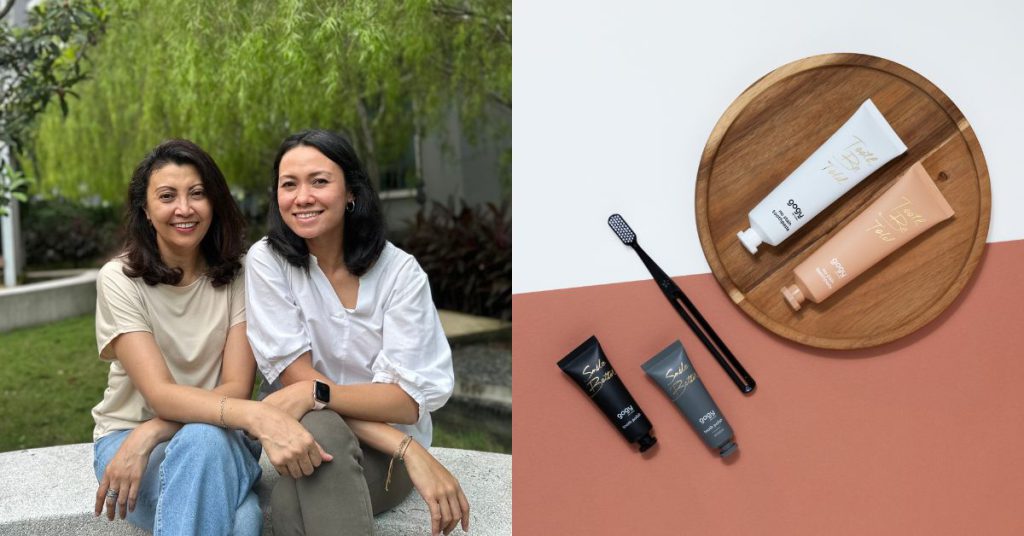
Ida Farini Binti Othman is no stranger to entrepreneurship.
Aside from 15 years of experience in marketing and promotions within the media and broadcasting industry, the woman also boasts 10 years of experience as a business owner of several types of businesses.
This includes a health and wellness spa by the name of Jentayu Spa by Sheila Majid, an online health food delivery called Good Grub, a kid’s party planning brand named Marvel Factory, and Kudsia + Co, a training company.
“I’ve always had the desire to own my own business,” Ida said to Vulcan Post. “I knew from early on I was not meant to have a career in the corporate world.”
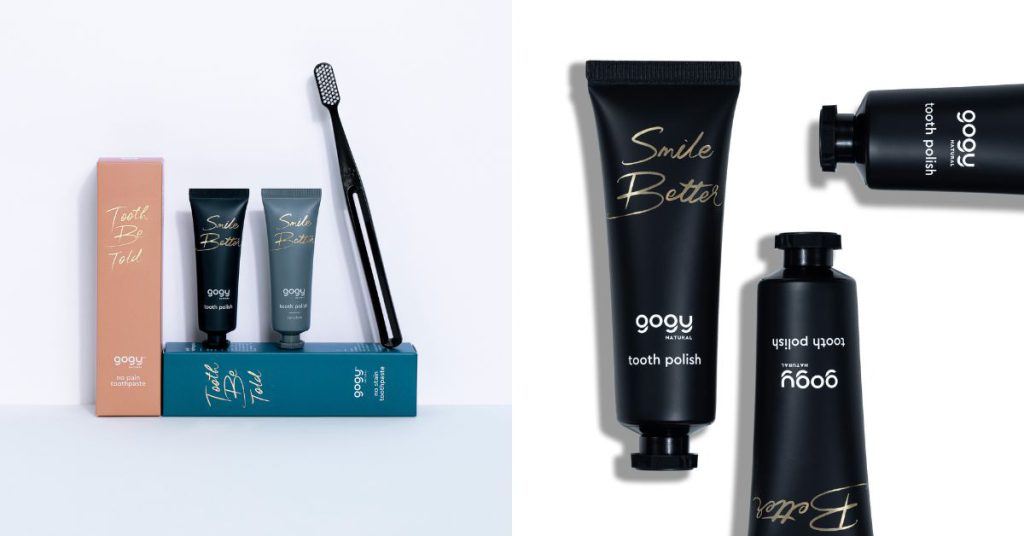
Ida took cues from her family as well—both her parents were business owners, and so are her siblings.
In fact, Ida is running a business together with one of those siblings, her sister Dilla. Specifically, they’re running a toothpaste business together by the name of Gogy Natural (Gogy), though some readers might be more familiar with their previous name, Chacology.
It started with one good product
Before Chacology though, there was an even earlier iteration of the name—CHACO. The name was a portmanteau of two key ingredients in the product it sold, which was charcoal and coconut oil.
The product was a strong, concentrated paste that acted like a mask or scrub to remove stubborn stains on the teeth, designed to be used three to four times a week, which Ida launched in 2017.
The inspiration from the product stemmed from Ida’s own experiences. In her 40s, she began feeling worried and embarrassed about her teeth, which had become yellow over the years. She wanted a solution, but one that wasn’t chemical-based, so she created a paste herself.
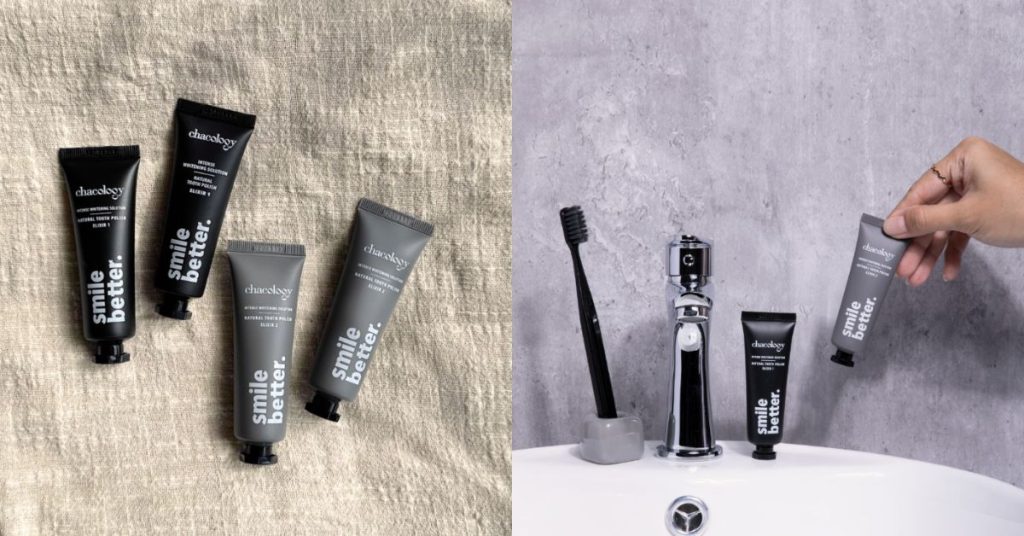
In those early days, Ida packed the product in tubs because it had the lowest minimum order quantity (MOQ) of 100 units.
“If it were packed in a tube, the MOQ was 5,000 units which I couldn’t afford,” she elaborated.
But after a year of selling her scrub at weekend bazaars around Klang Valley, she was able to change from her tub packaging to a tube format. At this point, she had to change her brand name from CHACO as it had been trademarked by a flipflop business in Brazil, and switched to Chacology.
“Again, had no forward thinking about brand growth,” she commented with a laugh regarding the name, referring to the fact that it limited her brand being associated with charcoal-based products only.
Having seen success with bazaars, she continued with those efforts, bringing Chacology to markets around the Klang Valley as well as Penang and Singapore.
By early 2020, she decided to turn her attention to ecommerce and online marketing, which proved to be a great decision considering the MCOs that ensued.
“By FYE 2020, safe to say we were profitable selling just one good product,” Ida shared.
With the success of said product, Ida decided to create two new ones in 2021.
Rebranding to grow the business
In between MCO restrictions, Ida developed two new toothpastes under the Chacology brand. These were created with feedback from her pool of customers, who shared they wanted more products to help with their oral care concerns.
With how well they seemed to be doing, it might be puzzling that Chacology turned into Gogy in 2023.
The reason for this, which was foreshadowed earlier, was because Ida wanted the brand to be more than just a charcoal-based toothpaste brand. Since they had created new charcoal-less products, it made sense to change the brand name.
However, Ida shared that despite Gogy’s ads, emails, and posts on Instagram, many customers are still unaware that Gogy and Chacology are the same people with the same products.
“It’s like starting a brand-building exercise from scratch,” she shared. “But we had to re-brand. After six years, the brand needed a refresh and [we had to look] at the bigger picture, in order to scale.”
Multi-step oral care
Today, Gogy offers four products that claim to not only help whiten teeth naturally, but also to help with other mouth issues. This includes two tooth polishes and two toothpastes.
The way Gogy approaches oral care is akin to how some may approach skincare. For example, for the “morning cleanse”, Gogy recommends its No Pain toothpaste that reduces plaque build-up.
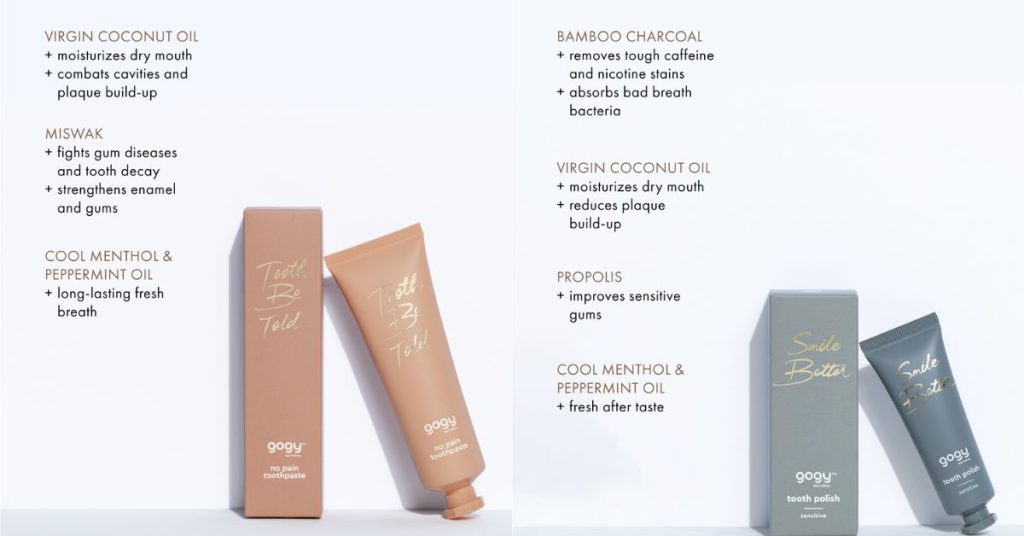
As for the night cleanse, that is taken care of by the No Stain toothpaste that is designed to remove food colouring stains and bad breath bacteria.
To be used three times a week, the “night exfoliate” (tooth polish) will help remove tough stains from coffee, tea, or tobacco for a brighter smile. There are two variations of the polish, a regular one and one for sensitive teeth.
The toothpastes are RM28 each, while the polish is RM50. Gogy also offers bundles and kits at discounted prices.
Compared to your usual toothpaste brands, Gogy’s products certainly seem to be more expensive.
However, Ida said she doesn’t really look at competition, especially the big brands.
“I see them in a different category,” she said.
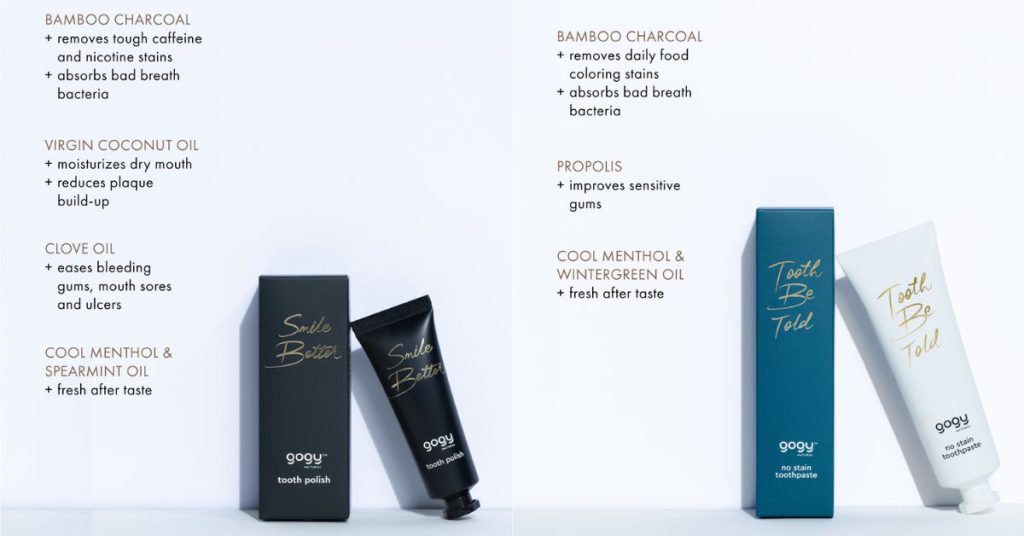
She pointed out, “Some of these big brands still use harmful chemicals in the products like Sodium Lauryl Sulfate (SLS) which is a common foaming agent that has been identified to be harmful to our body and banned in some countries. But because it’s the cheapest foaming agent, it is still being used it in their products.”
So, although she believes that competition will always be there, she’s not too worried.
“My focus is creating high-quality products and making sure that the ingredients used are natural, safe, food-grade with effective results of course.”
But how safe is her safe?
As an oral care product, Ida had to register her products with the Ministry of Health (MOH), which she said was quite an easy and straightforward process considering all her ingredients were natural, clean, and safe.
She also shared that her manufacturer is certified and registered with MOH.
Beyond that, Ida also got dentists to try the products, reaching out to friends and family members who were dentists or knew dentists.
“They tried it, liked/approved it and even recommended to their customers to try,” she said.
Aside from whitening, the products also help treat bleeding gums and mouth ulcers. Other healing ingredients like clove oil, vitamin C, organic propolis, miswak (Kayu Sugi) are added to promote gum care.

While some ingredients are sourced globally, Gogy’s oral care products are Malaysian-crafted, meaning they’re formulated and manufactured locally.
A small team with big plans
Despite having grown and sustained the Gogy brand, Ida keeps her inhouse team quite small with just her formulating products and doing business development, along with her sister Dilla, who left her full-time job in 2021. Dilla now designs the logo and packaging for Gogy, as well as handles branding and social media.
Moving forward, Ida hopes to change the way people look at oral care. With that, she aims to establish Gogy as a lifestyle brand. That’s why you’ll find that her products feature classy and aesthetically pleasing packaging.
With a steady customer base in Malaysia and Singapore, Ida’s next goal is to become internationally known and recognised as a trustworthy homegrown brand for innovative and, more importantly, effective natural oral care products.
- Learn more about Gogy Natural here.
- Read other articles we’ve written about Malaysian startups here.
Also Read: Here’s the story of a 36 Y/O Ipoh brand you may not have heard of that’s benefitting hawkers
Featured Image Credit: Gogy Natural
Cult Creative shuts down its job portal app, here’s what’s next for the M’sian platform
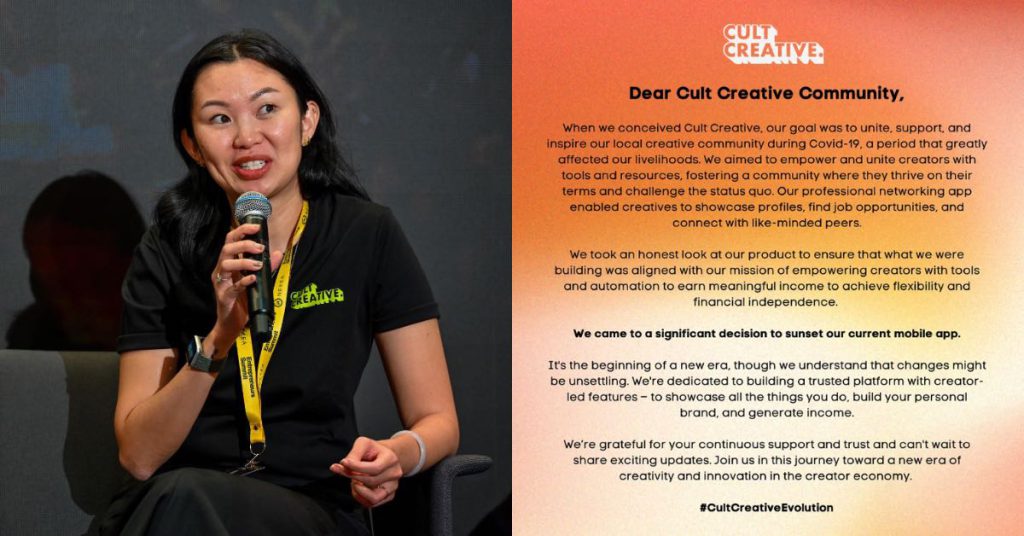
If you’re a young creative in Malaysia that has been job-seeking in the past couple of years, chances are you’ve heard of or even used Cult Creative.
The startup has been featured on Vulcan Post in its earlier days. At the time, it had launched as a job marketplace, specialising in roles for creatives, as many of them had lost their jobs during the pandemic.
But more than three years since its start, the platform has outgrown that label to become something bigger, which is one of the reasons why on November 14, Cult Creative announced that it would be sunsetting its app.
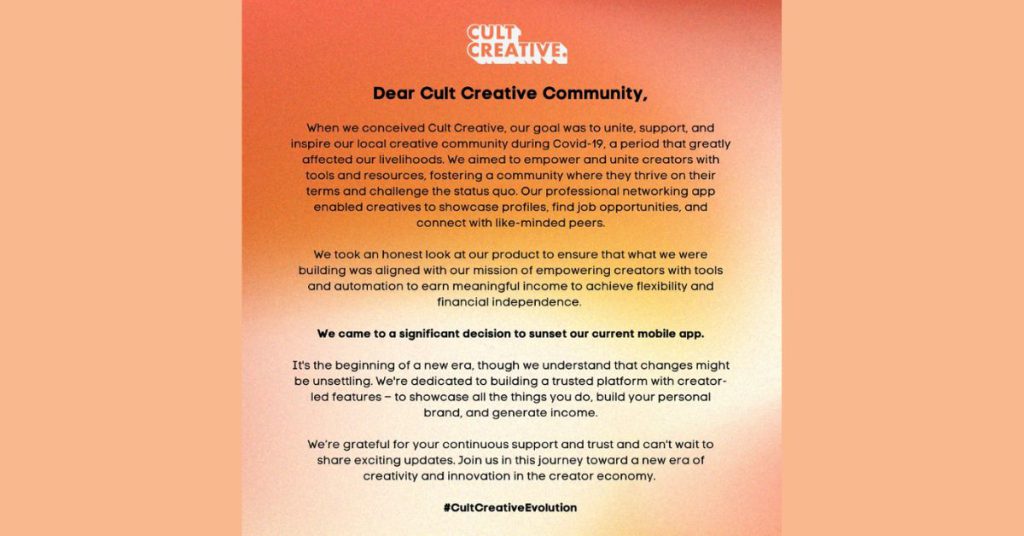
Pivoting with a purpose
To be clear, this is just a closure of the app itself, not Cult Creative as a whole.
In a call with Shermaine Wong, the CEO of Cult Creative, she gave a brief summary of what Cult Creative set out to do in the beginning.
Their mission was for creatives to be empowered with opportunities, resources, and freedom, helping them achieve the three Ps—purpose, passion, and pay cheque.
Although the app was able fulfill its duty of matching companies to creatives or vice versa, Shermaine realised that the team lacked controlled over the “pay cheque” element in their mission.
Typically, after matching creatives to their jobs, Cult Creative was no longer be able to keep tabs on what happens next. But occasionally, they would hear back from some creatives that got jobs through their platforms saying they were underpaid, unpaid, or inconsistently paid.
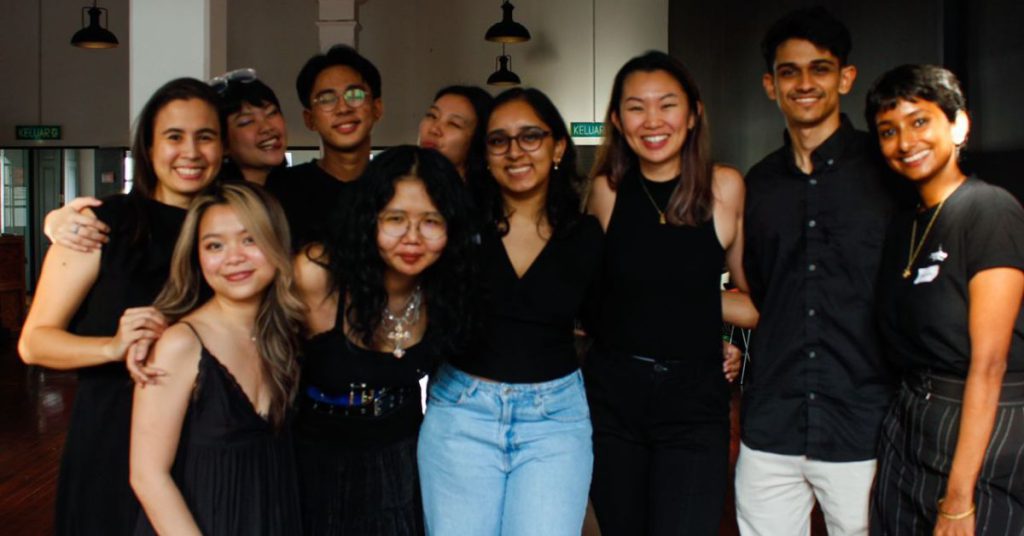
At the time, though, the app’s tech was very limited to serving as a job marketplace. There were no tools to properly track what came after the job match.
On top of the technological limitation, the team also noticed a change in the job market. During the pandemic, a lot of jobs were online, but since restrictions were lifted, more employers are looking for hybrid or on-site employees.
“While companies needed on-site, full-time employees, we realised that a lot of our creatives wanted gig work,” Shermaine said. “A lot of them were content creators, and they didn’t want to work full time. So there was a mismatch as well.”
So, with the limitations and mismatch in mind, Cult Creative decided to pivot.
Empowering creatives and educating brands
Starting in May 2023, Cult Creative began moving away from the identity of a job platform to more of a creator economy platform to help its 13,000 creators and 1,100 brands collaborate. The job portal still exists, but the team’s focus has shifted towards the creator economy side of things.
More than just bridging creators and brands, Cult Creative now plays a more involved role, offering additional tools and products for users.
A key complaint they heard from creators was that many didn’t have actual legal contracts and offer letters in place with brands.
Thus, the platform now features tools to generate legal agreements, clear brand briefs, and invoices, to help ensure they’re paid fairly and on time.
“I’m also protecting the brands as well,” Shermaine said. “As much as I talk about creators, we actually also help brands. We ensure the objective of the campaign and that whenever the creators submit their content, it’s on time and it’s on brand.”
Through insights from the brands on their platform, Cult Creative learnt that many of them, especially smaller ones, struggled to find content creators. And when they did have access to creators, they still didn’t know how or who to hire, and what to tell them to do.
Realising that brands needed education as well, Cult Creative has began hosting events such as the Small Business Summit.
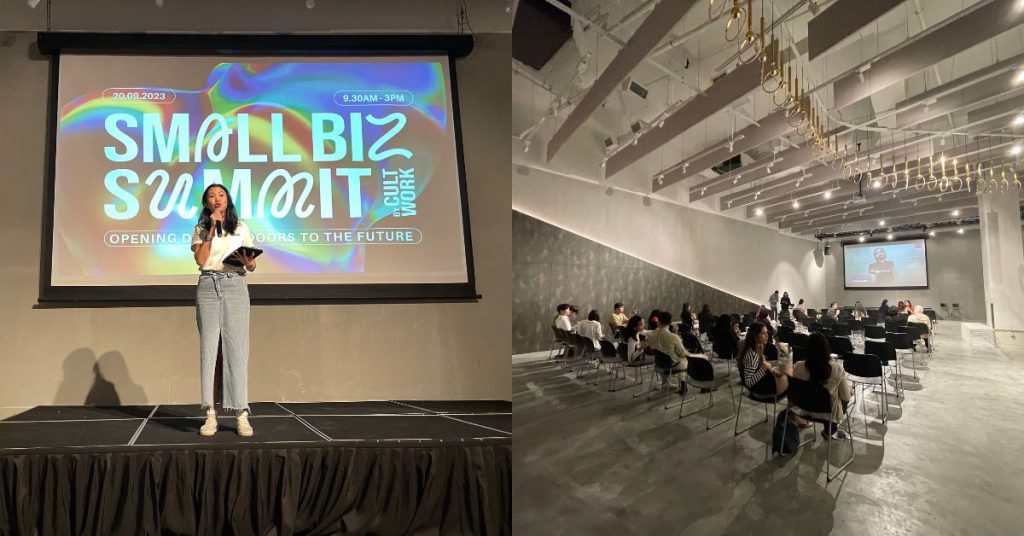
Despite not actively marketing the new service of connecting brands with creators, Shermaine reported that there are already brands on board, such as Supermama Lab and Pavilion KL.
“These are all connections that I had, and also the current brands that were already in our ecosystem using it,” she said.
A recent product the platform has rolled out is a subscription model starting at RM1,800 that lets brands work with four creators to make TikToks or Reels.
You might think that this service sounds similar to what influencer agencies do, but Shermaine believes that the creators on Cult Creative—who often come from backgrounds like social media managers, videographers, or other roles in the creative economy—better understand briefs, storytelling, hooks, and objectives.
Going forward, the Cult Creative brand will continue to help upskill creators, featuring content on how to score a brand deal, how to pitch a personal brand, and more.
Not the end of the story, just the start of a new chapter
While reasons for their pivot are clear, a question that still remains is why the team decided to axe their mobile app, instead of repurposing it or updating it. After all, the CEO said that the last she checked, there were about 60,000 downloads for the app.
Shermaine herself also liked the app, but there was just too many limitations with the format. The team was constantly struggling just to get one feature across well.
To start the slate clean, the team decided to just shut down the app.
Believing that it was a wrong decision to go straight to mobile, Cult Creative will now be focusing on creating a good web portal first for their refreshed platform.
That platform is not ready yet, though. So, why close the app now?
To that, Shermaine said, “We realise that the optics, if we didn’t do this, would be quite unclear. People were still thinking of us as a job platform, whereas we’re actually growing to become a more creator-centric platform.”
The CEO told us that the team is currently in the midst of a fundraising round. If all goes well, creatives can expect to see the beta version of the web app in Q1 2024.
Shermaine said that regardless of the funding, though, the team would still go ahead and build the platform—it’d take longer, but it’s still doable.
They’re already seeing positive results from the new pivot and realignment of their strategy and direction of the technology, she added.
Although the new platform is not out yet, Cult Creative is still actively working with creators and brands, just in a more manual way. Creators can still apply to join the platform via an Airtable form, and interested brands can schedule a call with the team.
- Learn more about Cult Creative here.
- Read other articles we’ve written about Malaysian startups here.
Featured Image Credit: NEXEA / Cult Creative

